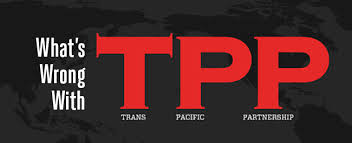It’s been a long 22 months since the first of thousands of classified government documents became public in what has turned into a drumbeat of astonishing revelations about the scope of mass surveillance carried out by the United States government. On Tuesday evening, USA Today detailed a massive surveillance operation, run by the intelligence arm of the Drug Enforcement Agency, that began in …
U.S. secretly tracked billions of calls for decades
The U.S. government started keeping secret records of Americans’ international telephone calls nearly a decade before the Sept. 11 terrorist attacks, harvesting billions of calls in a program that provided a blueprint for the far broader National Security Agency surveillance that followed. For more than two decades, the Justice Department and the Drug Enforcement Administration amassed logs of virtually all …
Will Mexico’s Oil Give the U.S. Another Excuse for Covert Intervention?
The drug war brought U.S. commandos into Mexico, but the opening of the country’s once publicly-owned energy resources to foreign investors may provide justification for the secretive American presence there to escalate—especially if the cartels are successfully painted as “narcoterrorists.” Energy resources can never be ignored in geopolitics. And an often forgotten fact is that Mexico is its northern neighbor’s …
Trans-Pacific Partnership: A Fast Track to Disaster
The U.S. is at the tail end of negotiating the Trans-Pacific Partnership (TPP)—a massive trade deal with Mexico, Canada, Japan, Vietnam and seven other countries. The negotiations have been conducted in secret. Now Congress will soon decide whether to grant the Obama administration “fast track” authority to have the “final” pact approved as is—meaning strict limits on Congressional debate and no …
Free trade and Mexico’s junk food epidemic
For several years now, transnational food companies have understood that their main growth markets are in the South. To increase their profits they need to “dig into the pyramid”, as one company puts it, meaning they need to develop and sell products targeted at the millions of the world’s poor. These people generally eat food from their own farms or …




